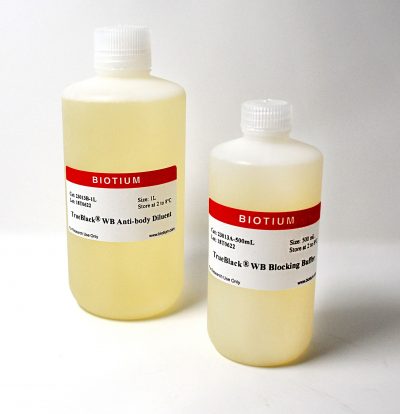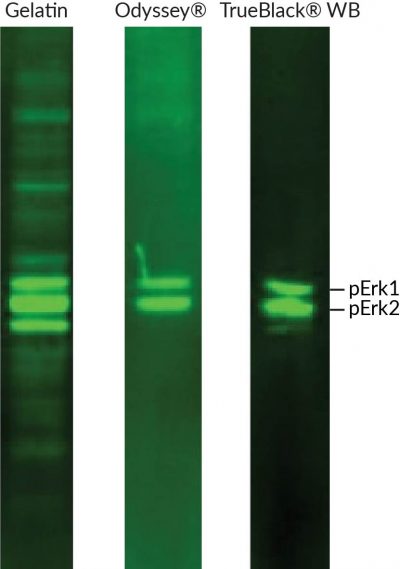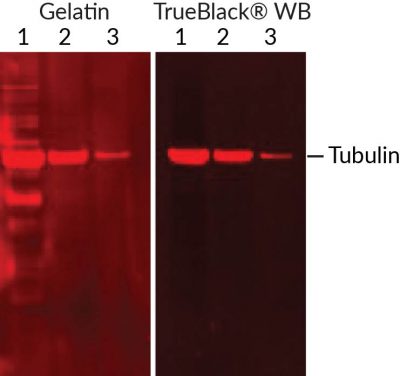TrueBlack® WB Blocking Buffer Kit



TrueBlack® WB Blocking Buffer Kit
The TrueBlack® WB Blocking Buffer Kit is a ready-to-use buffer system that provides optimal specificity, sensitivity, and background signal suppression for fluorescence-based western blotting (WB).
The TrueBlack® WB Blocking Buffer Kit is a ready-to-use buffer system for fluorescence-based western blotting (WB). The buffers are designed to achieve optimal specificity and sensitivity by blocking background from the non-specific interaction between the fluorophore-labeled antibodies and the membrane.
Blocks non-specific protein binding, reducing background fluorescence over the entire membrane
Works as well or better than LI-COR’s Odyssey® Blocking Buffer, at a lower cost
Suppresses background caused by charged fluorescent dyes (performs better than BSA, gelatin, or casein)
Reduces antibody cross-reactivity, eliminating non-specific bands
Compatible with both polyvinylidene difluoride (PVDF) and nitrocellulose membranes
Can be used with antibodies labeled with all types of fluorophores spanning the visible and NIR spectrum
Contains non-mammalian blocking agents, for broad secondary antibody compatibility
TBS based buffer suitable for phosphoprotein detection
NOT designed for chemiluminescence detection using HRP conjugated antibodies
Non-specific signal in WB can arise from multiple sources, including antibody cross-reactivity with off-target proteins, non-specific antibody adsorption to the membrane, and membrane autofluorescence. Another potential cause of background that is not well-known is the effect of fluorescent dyes themselves on the specificity of labeled antibodies. Next-generation fluorescent dyes like Alexa Fluor® or CF® dyes often carry multiple negative charges to improve dye solubility and brightness of conjugates. However, the extra charge carried by the dye can result in non-specific antibody binding and background fluorescence. The TrueBlack® WB Blocking Buffer Kit blocks background from multiple sources including charged dye conjugates. It is especially advantageous for phosphoprotein detection, significantly improving specificity compared to conventional blocking buffers.

